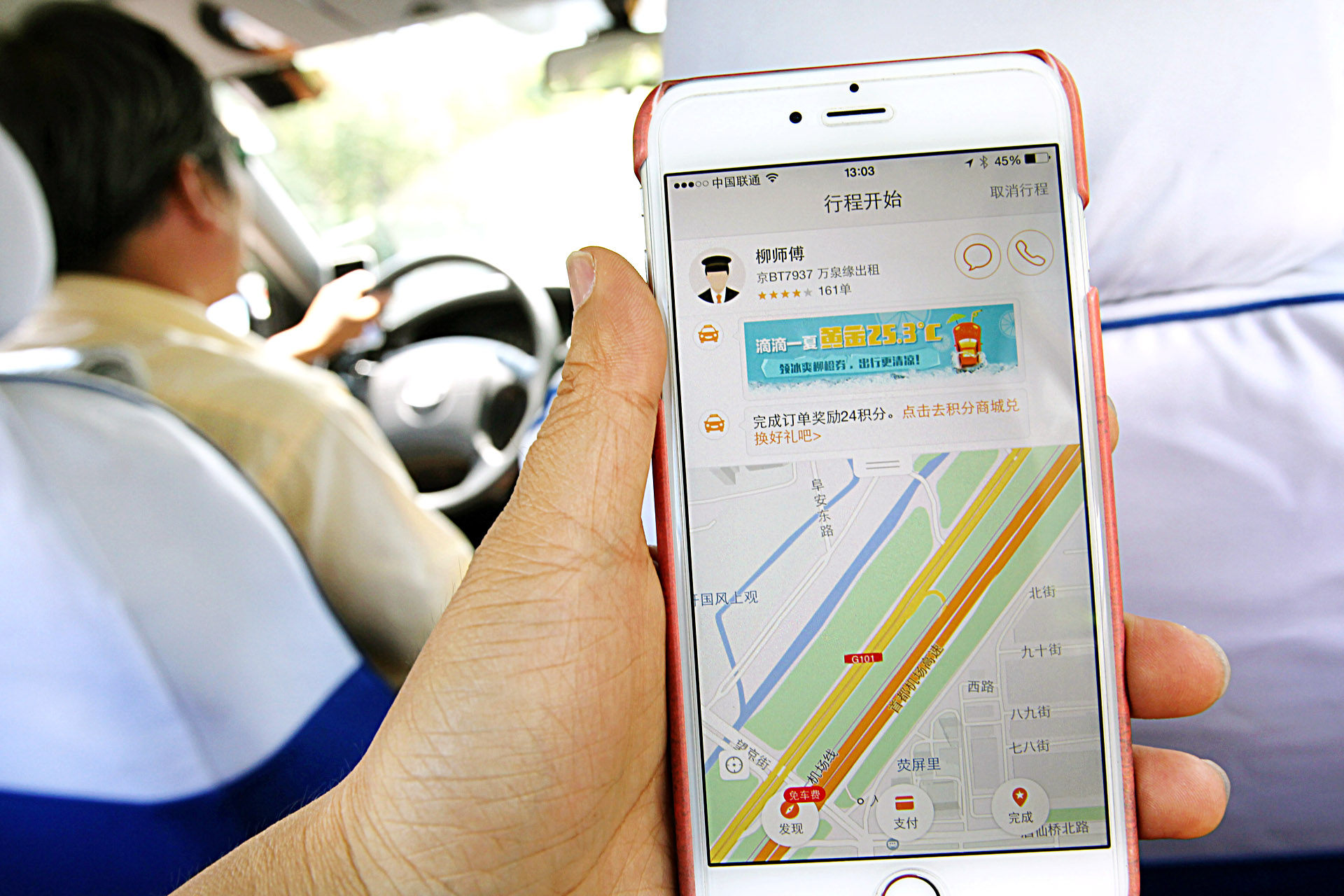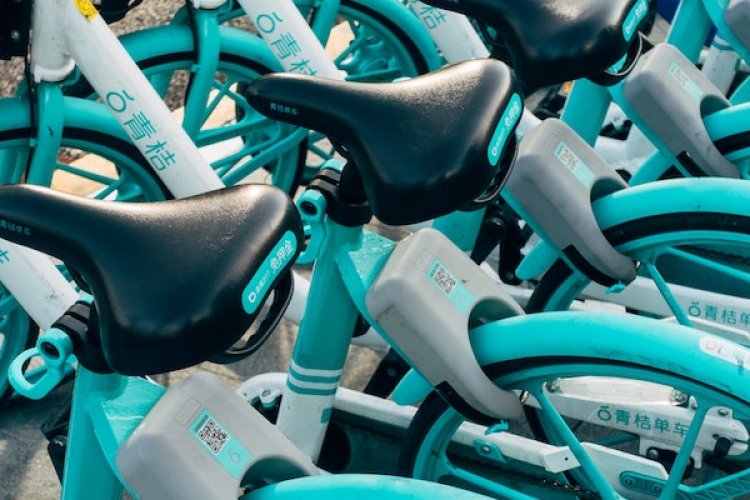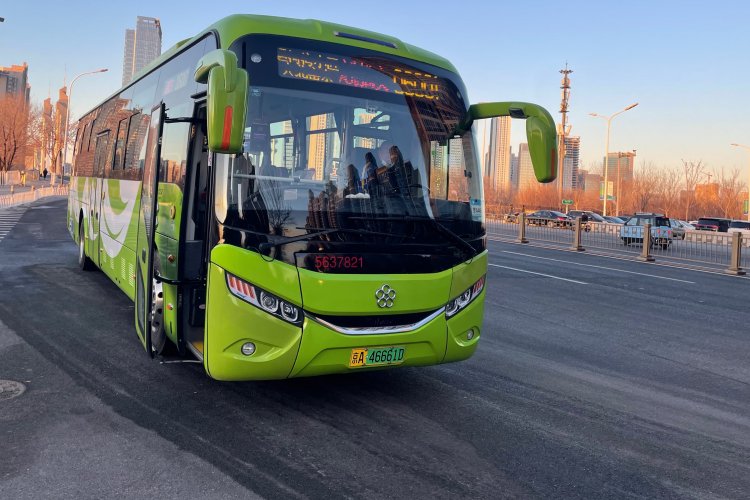End of an Era for Didi, Uber? New Car-Hailing Service Regs May Cut Out Half of Drivers
Ride-sharing services such as Didi, Yidao, and Uber, which liberated so many of us from the tyranny of terrible taxi service in Beijing, may be dealt a severe blow if new regulations released over the weekend go into effect.
The new policies place strict restrictions on both cars and drivers. Only holders of a Beijing hukou will be allowed to drive for private ride-share companies in the capital. The new policies will also enforce a minimum-size requirement for vehicles used by the car-hailing apps.
According to a statement released by the ride-share company Didi, the new regulations will drastically reduce the number of available cars and drivers as few of their vehicles or drivers can meet the stringent new provisions.
The policies are apparently part of an ongoing not-so-secret initiative to deprive Beijing residents of “nice things.” Officially, though, Beijing’s Transport Commission, who drafted the new rules, says that the regulations will help spare Beijing from traffic congestion and air pollution. Yeah, right.
But not everyone is unhappy with the new policies. The Global Times managed to find a white-collar worker named Huang to spout some mildly-elitist blather about funny talkin’ drivers who can’t find their way around Beijing.
"This is a boon for passengers," said a Beijing-based white-collar worker surnamed Huang. She complained that unqualified drivers had dragged down the industry's overall service quality and caused market chaos.
"Non-local drivers are not familiar with local traffic conditions. They usually waste a lot of time finding the right way through online navigation services, and sometimes I have difficulty understanding their accents," Huang told the Global Times on Saturday.
Seriously. Since when has a Beijing hukou meant knowing your way around? Most licensed taxi drivers in Beijing couldn’t find their own rectal opening with a cartographic chart and a magnetic navigational aid. This woman is arguing that GPS, which I will tell you is the single greatest advantage of these ride-share services, is a waste of time.
Needless to say, Didi and the other ride-share companies are completely freaking out. For them, this is possibly an extinction-level event.
In a statement released to the media over the weekend, Didi warned that consumers and drivers would suffer the most from the new rules.
“App-based ride-share becomes affordable thanks to the high-cost efficiency of privately-owned vehicles. Operating costs are bound to rise sharply if only Passat or Audi A4L-level luxury sedans are allowed. In some cases, ride-share fares might rise to twice as much as comparable taxi fares.
“Millions of ride-hailing drivers will lose their job and income. It means that millions of families will lose their major source of income.”
A date to begin enforcing the new regulations has not yet been set. Although an unscientific survey of the Beijinger staffers suggests that the wait for a car using Uber and Didi has increased dramatically over the past few weeks.
RELATED: 5 Ways to Stay Safe and Avoid Ghosts on Uber and Didi in Beijing
The new regulations will also affect ride-sharing services in two other major cities in China. In their statement, Didi said that only one in five Didi vehicles in Shanghai would meet the minimum size requirements and that fewer than 10,000 out of a total 410,000 drivers in that city had a Shanghai hukou.
Things had been looking up for ride-sharing in Beijing. This past July, the central government legalized online car-hailing services. In August, Didi acquired Uber’s China business.
Photo: SCMP
Related stories :
Comments
New comments are displayed first.Comments
![]() PatrickLi
Submitted by Guest on Wed, 11/02/2016 - 23:36 Permalink
PatrickLi
Submitted by Guest on Wed, 11/02/2016 - 23:36 Permalink
Re: End of an Era for Didi, Uber? New Car-Hailing Service...
Assuming laws are created for the self interest of the vested interest groups, I still think it's a total sum for a society to "play" by rules instead of playing with total disregard of rules. There's difference between the police or a local government agency not enforcing a law, which happens all the time in China, and the police telling the media, publicly, "no no no, the new law doesn't rule," which is, I think, kind of rare and backward-going even by China's standard, and that's what suprised me.
![]() admin
Submitted by Guest on Tue, 11/01/2016 - 16:14 Permalink
admin
Submitted by Guest on Tue, 11/01/2016 - 16:14 Permalink
Re: End of an Era for Didi, Uber? New Car-Hailing Service...
Actually the laws are great for both the transportation ministry and the police.
Every new law is an opportunity for new layers of bribery to be created throughout the system.
Additionally, laws are created for selective enforcement so discrimination can be disguised and rationalized
![]() PatrickLi
Submitted by Guest on Tue, 11/01/2016 - 15:19 Permalink
PatrickLi
Submitted by Guest on Tue, 11/01/2016 - 15:19 Permalink
Re: End of an Era for Didi, Uber? New Car-Hailing Service...
http://finance.sina.com.cn/chanjing/2016-11-01/doc-ifxxfysn8387059.shtml
Just read this piece from the news which makes me feel completely pessimistic to China's rule of law.
Basically as this TBJ piece says, the new regulation made by the Department of Transportation requires taxi hailing apps' taxi drivers to have a local hukou and cars to have a local registration, and the Department of Transportation sets the inauguration date of the new regulation strictly on November 1. However, earlier today, the Beijing police told Huaxia Times that they have not received any notice to enforce this new law, so they JUST WONT ENFORCE IT, and they don't think this law will be good for long. A police department openly refuses to enforce the regulation made by the country's department of transportation. There's some losing face going on for the minister of transportation, I guess? It's understandable that politics is about money. But can't they finish the deal before promulgating the law? From now on I'm skipping the local news on new "policies," "regulations" and "laws," and and I'll only believe in things when I see them happening. Rule promulgation and enforcement in China is totally, utmost unpredictable and untrustworthy, totally a joke and a waste of time.
![]() schreursm
Submitted by Guest on Tue, 10/18/2016 - 09:49 Permalink
schreursm
Submitted by Guest on Tue, 10/18/2016 - 09:49 Permalink
Re: End of an Era for Didi, Uber? New Car-Hailing Service...
There weren't any cars around my neighborhood this morning where there are usually loads. Seems like not a single didi driver had a Beijing hukou.
![]() britomart
Submitted by Guest on Mon, 10/17/2016 - 16:59 Permalink
britomart
Submitted by Guest on Mon, 10/17/2016 - 16:59 Permalink
Re: End of an Era for Didi, Uber? New Car-Hailing Service...
买电动车吧!
![]() TX_Chick
Submitted by Guest on Mon, 10/17/2016 - 08:42 Permalink
TX_Chick
Submitted by Guest on Mon, 10/17/2016 - 08:42 Permalink
Re: End of an Era for Didi, Uber? New Car-Hailing Service...
Well, it seems that the regulations have gone into full force. The number of available cars was greatly reduced this morning, they were suggesting a 10RMB markup to have a 40% chance of hailing a regular taxi, and the DidiKuaiChe was x2.2. Mondays it's normally not more than x1.8.
And traffic was a beast this morning. I suppose it's possible that many people who count on an inexpensive ride with didi were forced to drive this morning, increasing the number of cars on the road. In any case, this was well beyond normal Monday difficulties.
Hopefully the regulations will be softened soon.
![]() Candy1988
Submitted by Guest on Fri, 10/14/2016 - 10:30 Permalink
Candy1988
Submitted by Guest on Fri, 10/14/2016 - 10:30 Permalink
Re: End of an Era for Didi, Uber? New Car-Hailing Service...
Talking about city-wide congestion, if it's not for going through the express highway, the best way to travel as I think is on foot or to use this kind of toy(代步平衡车)

![]() PatrickLi
Submitted by Guest on Fri, 10/14/2016 - 08:14 Permalink
PatrickLi
Submitted by Guest on Fri, 10/14/2016 - 08:14 Permalink
Re: End of an Era for Didi, Uber? New Car-Hailing Service...
Most people still take buses or subway to go to work in Bejing,sometimes they get too crowded for other people to get on after a few stops from the first stop. The 10 RMB I was talking about is not like taxi, because it's about a 30km ride to save energy and time for the following bus or subway trip in the city centre before starting one day's work...
10 RMB is worth it to avoid such a situation above...
Exactly. If 10 kuai can buy me a nice ride in the back of a brand new Toyota Camry, I'd be a moron to choose to rub butts in a subway car, but that's not necessarily a good thing on the societal level especially in light of dealing with city-wide traffic congestion.
![]() PatrickLi
Submitted by Guest on Fri, 10/14/2016 - 05:26 Permalink
PatrickLi
Submitted by Guest on Fri, 10/14/2016 - 05:26 Permalink
Re: End of an Era for Didi, Uber? New Car-Hailing Service...
Perhaps more Didi drivers would make it so convenient for people to get around, on a moments notice, that many people would feel that they do not need to own a car. Thinking along those lines I think it is clear to see that more Didi drivers would mean less cars on the road overall since it could be one car servicing ten people a day vs. ten cars servicing ten people a day. It usually boils down to money and whoever is losing money over Didis probably has the ear of some power broker.
Also, the fact that Uber/Didi seem to have hit the ground running shows that there is a need/market for that kind of public service so why not just let it sort itself out with market supply and demand rules and see what happens after a few years then take it from there. As long as Didi drivers have 3rd party liability insurance are they any different from a taxi? Perhaps taxis as we know them are on the way out just the same as the interent will soon make TVs a thing of the past.
I'm not an expert on transportation but my commen sense understanding is that taking a taxi is not subtantially different from driving in terms of effeciency becasue driving means one car on the road and taking a taxi means one car on the road, too. Driving may be even more effecient than taking a taxi becasue taxis ride "empty" (not-in-service) from time to time when they try to attract customers or go to designated pickup locations. For example, if one drives to work, the ride starts from his home and ends in his office parking lot. However, if one takes a taxi to work, the taxi puts on a few additional miles because it needs to first reach the patron. I have personally driven Uber for a few times and my experience is for every hour of Uber driving, you spend about one third of the time en route to the pick up location.
True -- the fact that Uber/Didi hits the ground running shows there is a need/market for the kind of service, but it is arguable whether the market desirable number of taxis is also desirable with respect to the general expectation of a city's transportation system. Taxi driving requires very low level of skills and may invoke a huge influx of cheap labor. Uber/Didi drivers will keep entering the market until they find there is no more profit -- this means the number of taxis will increase until the roads are congested to a point when the taxi drivers and passengers can't take it anymore. However, taxi drivers and passengers tend to have a very high tolerance of it. Think of an average Didi driver in Beijing --- many of them were unemployed until they started driving Didi, which means he would probably keep driving until it makes so little money that he'd rather stay at home. He doesn't have a 30 kuai/hour alternative job which will make him quit once the hourly profit drops below 30 kuai/hour; instead, he had a 0 kuai/hour alternative.
But such a market balance is definitely not desirable for a city like Beijing because it will be dysfunctional for many other people. No business person wants to work in a city with a dysfunctional ground transportation system. No traveler wants to travel here. No international event wants to land here. No professional sports team wants to move here. No company wants to set its headquarters here. For many people, businessmen, doctors, students, technicians, their time is much more valuable than taxi drivers', so you don't want the level of road congestion falls to the taxi driver standard, which, I suspect, is why all major international cities require commercial taxis to register partly as a measure to limit their numbers. No city allows people to drive taxi as they want.
![]() Candy1988
Submitted by Guest on Thu, 10/13/2016 - 09:59 Permalink
Candy1988
Submitted by Guest on Thu, 10/13/2016 - 09:59 Permalink
Re: End of an Era for Didi, Uber? New Car-Hailing Service...
Most people still take buses or subway to go to work in Bejing,sometimes they get too crowded for other people to get on after a few stops from the first stop. The 10 RMB I was talking about is not like taxi, because it's about a 30km ride to save energy and time for the following bus or subway trip in the city centre before starting one day's work...

10 RMB is worth it to avoid such a situation above...
![]() PatrickLi
Submitted by Guest on Thu, 10/13/2016 - 09:01 Permalink
PatrickLi
Submitted by Guest on Thu, 10/13/2016 - 09:01 Permalink
Re: End of an Era for Didi, Uber? New Car-Hailing Service...
Two different issues:
Whether Didi/Uber should be regulated, and their number be controlled?
Whether the regulation should be based on drivers' hukou?
My perspective to the first issue is yes, and to the second one is no.
I think Didi/Uber should definitely be subject to regulations and I even argue that they should be treated in a simialr or the same way as commercial taxis because it is so obvious that far from being "ride-sharing fora," Didi and Uber cars function exactly the same as commercial taxi cabs. The vast majortity of Beijng's Didi and Uber drivers are full-time taxi drivers. They don't drive Uber to share rides but to make a living as traditional commercial taxi drivers do.
The number of taxis should be strictly controlled in metropolitan areas espcially in developing countries. Comparing with public transportation, taxis are the worst possible way to address metropolitan traffic congestion. Taxi cabs should never be regarded as a common way of commute (but a gret number of Beijingers do use taxis as their first choice of commute).
I believe Beijing has one of the worst traffic among world metropoles but definitely the cheapest taxi fare. I have never seen another city where such a large percentage of people people take taxi as their daily commute to work. A single Uber ride starts 6.75 dollars in the US but it's only 10 kuai (about 1.5 dollars) in Beijing.
The real solutions to Beijing's traffic congestion is public transportation and urban replanning, i.e. improving the quality of public transportation and reorganizing city zones to make people live nearer to where they work.
To the second issue, it is arguable, and to my mind it is not fair to regulate Didi/ Uber drivers based on their hukou. The best way I can think of is to impose higher taxes on taxi hailing apps and much more strict regulations on taxi driver's behaviors. With a much higher tax, the price of Didi and Uber will go up, demand will shrink (more people will take public transportation), and less skillful drivers will quit.
In one word, Beijing taxis should be more expensive, but also more qualified.
![]() Candy1988
Submitted by Guest on Wed, 10/12/2016 - 20:36 Permalink
Candy1988
Submitted by Guest on Wed, 10/12/2016 - 20:36 Permalink
Re: End of an Era for Didi, Uber? New Car-Hailing Service...
Yeah, a Porsche SUV driven by a Korean guy maybe, since I couldn't understand his conversation with his mother and wife/girlfriend in the car. Those people are environmentalists. They normally make their car full before going on the way to their workplace. Sometimes, they charge you nothing if you are elderly.
![]() WSL
Submitted by Guest on Wed, 10/12/2016 - 17:33 Permalink
WSL
Submitted by Guest on Wed, 10/12/2016 - 17:33 Permalink
Re: End of an Era for Didi, Uber? New Car-Hailing Service...
Porsche and RMB 10......?
![]() Candy1988
Submitted by Guest on Wed, 10/12/2016 - 12:21 Permalink
Candy1988
Submitted by Guest on Wed, 10/12/2016 - 12:21 Permalink
Re: End of an Era for Didi, Uber? New Car-Hailing Service...
Mostly I hail a car directly on the road. And one time I took a Porsche through the express highway to Guomao from where I live and the driver only charged me RMB 10...
Validate your mobile phone number to post comments.







